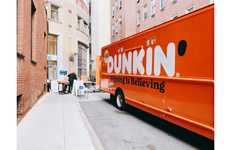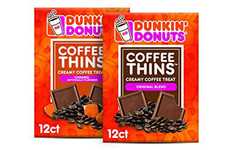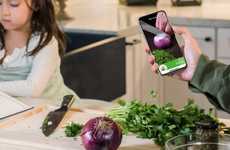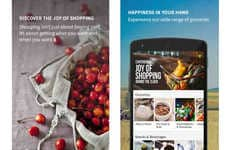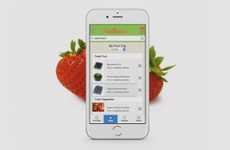



Smart, predictive technology aids consumers with shopping list-makers
Trend - As more consumers turn to their phones to store their shopping lists, brands take this a step further with organization apps and predictive list-makers. New platforms that leverage AI, smart technology and voice-assistive tools make it easier than ever for consumers to keep track of what they need when they're shopping—it can even help navigate physical stores.
Insight - With the convergence of the digital and physical shopping spheres, many consumers are looking to technology to streamline their retail experience. This tech-savvy demographic is accustomed to efficiency in their daily activities, and want to be able to do more in less time. Therefore, these consumers are willing to give up personal information—such as past buying behavior or their current location—for services that prioritize convenience by predicting their future needs and, ultimately, make their retail experience seamless.
Insight - With the convergence of the digital and physical shopping spheres, many consumers are looking to technology to streamline their retail experience. This tech-savvy demographic is accustomed to efficiency in their daily activities, and want to be able to do more in less time. Therefore, these consumers are willing to give up personal information—such as past buying behavior or their current location—for services that prioritize convenience by predicting their future needs and, ultimately, make their retail experience seamless.
Workshop Question - How can you leverage smart brick-and-mortar technology to ease consumers' path to purchase?
Trend Themes
1. Predictive Shopping Lists - Using machine learning, smart shopping lists now offer personalized recommendations based on past behavior and products that are already in a cart, providing an opportunity for brands to prioritize convenience in their retail experience.
2. Assistive AI Kitchen Apps - AI-powered kitchen assistants can suggest recipes based on taste preferences and scan receipts to manage ingredient lists, delivering a new level of ease and organization for busy consumers and creating opportunities for smart appliance integration.
3. Sustainable Food Discovery Apps - Consumers looking for sustainable and healthy food choices can now use apps that provide environmental impact information and recipe recommendations, creating new opportunities for brands to promote ethical and eco-friendly products.
Industry Implications
1. Retail - The convergence of digital and physical shopping spheres has prompted brands to develop solutions that prioritize convenience and efficiency, such as smart shopping lists and visual search tools.
2. Food and Beverage - The emergence of predictive and AI-powered kitchen assistants, along with sustainable food discovery apps, have changed the way consumers approach cooking and shopping for groceries.
3. Technology - The use of AI, voice-assistive tools, and smart technology in shopping list-making apps and kitchen assistants present opportunities for innovation in the tech industry.








